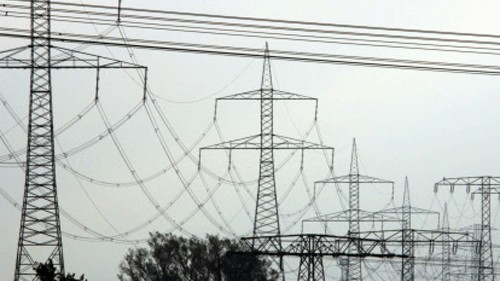
Representative image.
Credit: Reuters Photo
Bengaluru: India's transition to clean energy can be smooth if it incentivises similar initiatives by micro, small and medium industries (MSMEs) which account for 25% of the overall energy consumption of the country, says a new study by the World Resources Institute, India.
Its 6.3 crore MSMEs employ 10.1 crore people and account for 45% of total manufacturing output and 40% of the country's export. One third of the MSMEs come under the manufacturing category and remaining ones are in the service and trade sector. India has set the goal of reducing CO2 emissions by 1 billion tons by 2030, reducing carbon intensity below 45% by 2030.
The working paper noted that due to the limited collateral and credit history, MSMEs are challenged by limited access to finance, especially for business operations, expansion, and working capital. As a result, MSME sector is dependent on cheaper and outdated technologies and processes which results in high energy consumption.
"Studies indicate a 6.8% year-on-year growth in energy consumption, including both thermal and electrical energy consumption during 2012-13 and 2019-20. The projected energy consumption for MSMEs shows a steep increase (by more than 100%) from 30 million tonnes of oil equivalent in 2016-17 to 72-17 million tonnes of oil equivalent in 2029-30," it said.
The researchers assessed the "multitude" of schemes introduced by the Union and state governments for MSMEs and took note of their positive impacts. "Nevertheless, a distinct gap exists: the lack of a standardised framework for gauging the real-world impact of these schemes, including their influence on the clean energy transition. This gap is of paramount importance in evaluating the effectiveness and long-term sustainability of these endeavours," it said.
The study recommended a thorough assessment of three "crucial components" of governance structure, institutional frameworks and coordination mechanisms. It also stressed the need to address the lack of awareness of schemes among a vast number of SMEs, lengthy and time-consuming documentation process, a longer payback period for investment in renewable energy and gaps in sector-specific skills and knowledge.
The researchers called for effective interventions by the Union and state governments by taking into consideration the unique challenges, requirements and opportunities present within different subsectors of the MSMEs.
"This tailored approach ensures that clean energy initiatives are aligned with the specific needs and characteristics of individual subsectors, making the transition more efficient and feasible," they said.
"Given their vulnerability, MSMEs will need policy consistency, government backing, awareness of the benefits of clean energy and a supportive regulatory environment to decarbonise and survive the challenges that come with energy transition and a climate-stressed world,” said Gowthami T S, lead author and Senior Project Associate, Energy, WRI India.